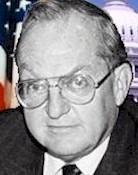Re: House Courts and Intellectual Property Subcommittee hearing on HR 1565, the Trademark Amendments Act.
Date: May 5, 1999.
Source: House Judiciary Committee.

| Opening Statement of Rep. Howard Coble (R-NC). Re: House Courts and Intellectual Property Subcommittee hearing on HR 1565, the Trademark Amendments Act. Date: May 5, 1999. Source: House Judiciary Committee. |
 |
|
STATEMENT OF
THE HONORABLE HOWARD COBLE, CHAIRMAN
SUBCOMMITTEE ON
COURTS AND INTELLECTUAL PROPERTY
COMMITTEE ON THE JUDICIARY
REGARDING H.R. 1565, THE "TRADEMARK AMENDMENTS
ACT OF 1999."
May 5, 1999
Good afternoon. The Subcommittee will come to order.
Today, we are here to discuss H.R. 1565, the "Trademark Amendments Act of 1999." H.R. 1565 makes important amendments and clarifications to the Lanham Act.
In 1996, Congress passed the "Federal Trademark Dilution Act of 1995" which gave a federal cause of action to holders of famous trademarks for dilution. The Dilution Act provides for injunctive relief after an identical or similar mark has been in use and has caused actual dilution of a famous mark but provides no means to oppose an application for a mark or to cancel a registered mark that will result in dilution of the holder's famous mark. A recent decision of the Trademark Trial and Appeal Board held that the Congress did not intend to allow dilution as grounds for opposition or cancellation. The result of this decision is that the holder of a famous mark must wait for actual harm from dilution in order to seek a remedy through the federal courts. H.R. 1565 would provide holders of famous marks with a right to oppose or seek cancellation of a mark that would cause dilution. This amendment will meet the important policy objectives of a more timely and inexpensive resolution of the dilution issue, and result in greater certainty in the application of this body of trademark law.
H.R. 1565 also amends the trademark law to allow for private citizens and corporate entities to sue the Federal Government for trademark infringement. Currently, the Federal Government can not be sued for trademark infringement by a private citizen or corporate entity. Yet, the Federal Government enters the marketplace as a competitor to private business and is in a position to sue others for infringement. This runs counter to our sense of "fairness." H.R. 1565 will level the playing field in this respect.
H.R. 1565 further provides a very limited amendment to the Lanham Act to provide that in an action for trade dress infringement, where the matter sought to be protected is not registered with the U.S. PTO, the plaintiff has the burden of proving that the trade dress is not functional. This amendment will promote fair competition and provide an incentive for registration.
Finally, the Subcommittee will receive testimony regarding the issue of "imposter" performers and the impact that has on the original performers in a musical group. On any given night, all across the nation, fake "oldies" groups take the stage under the name of the original groups. Because they perform for a lower price than the true original performers, the original performers are at home, not working. Two witnesses will join us to explain how this problem has impacted their lives and I know Mr. Berman joins me in seeking a constructive amendment to this legislation addressing this issue.
Mr. Berman, unfortunately, cannot be here today because of a scheduling conflict, but he and I are in close contact and his staff is here, and I know that he is very much interested in seeing the advancement of this legislation and appropriately addressing the concerns of the musical group performers.